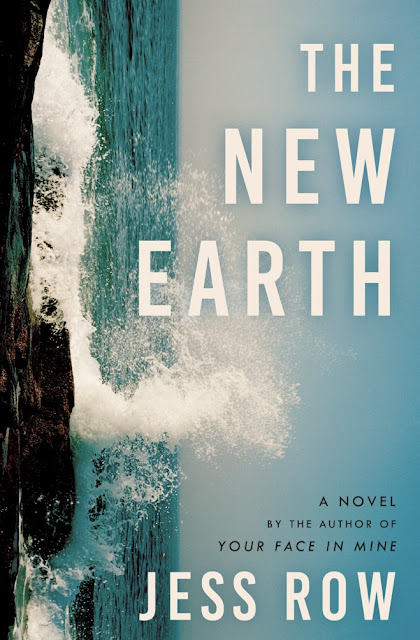I didn’t “get” Jorge Luis Borges in college and I don’t get him now. In fact, I blame him for the extreme authorial self-consciousness that adds nothing but a highbrow academic veneer to an almost compelling novel overflowing with enough themes to power several. That said, Jess Row‘s dissection of a dysfunctional Upper West Side family reminds me of Jonathan Franzen, high praise indeed.
Bering Wilcox, the youngest daughter of a Midwestern attorney and a Jewish climate change doomsayer, has been killed by Israeli Defense Forces while volunteering as a peace activist in Palestine. Here’s what her brother Patrick, a Buddhist monk who eventually becomes a tech savant, has to say at her memorial service in Jerusalem:
“She would have been fascinated by all of you, in this room,” he said. “Which is so much like the rooms we grew up in in New York. Probably some of you are from New York, you know what I’m talking about. She would have wanted to ask you the same questions she always asked: how can people live comfortably, how can they enjoy their many creature comforts, and let’s face it, there are so many of them, in a world like this? Particularly so very close to the face of the other. Pressed up close to the fence. That’s what she said to me about Jerusalem: pressed up close to the fence, pretending it isn’t there. She found it fascinating.”
That, in a nutshell, is precisely why I chose to pick up The New Earth when the 75-year-old crisis in the Middle East blew up yet again in early March.
By the way, the novel begins with the attempted suicide of Bering’s father, whose miserable marriage to Naomi has endured in spite of the fact that she cheated on Sandy before and after giving birth to Patrick during their hippie period in Vermont. Oh, and Naomi is biracial, a secret she keeps from her children. There’s more: Winter, the baby of the family, is an immigration attorney living with Zeno, an undocumented Mexican with a life-threatening allergy whose mother was an indigenous revolutionary. And did I mention that Bering seduced Patrick who . . .
Yep, it’s a LOT!
But you have to love a novelist who imagines a character who worries that his suicide might be tainted by a connection to the 2016 presidential election:
To tie your death forever to that heaping steaming shitpile of a Roy Cohn acolyte and wannabe Capone, that blond pompadour with the bloated cheeks, pinched squinty eyes, who was a New York joke thirty years ago, going from bankruptcy to bankruptcy with nothing but a gold-plated name stamped on everything within reach?
And while Row’s political solution to the interminable battle between Jews and Arabs over Palestine seems untenable—co-existing together in a single state with constitutional protections for minority-population Jews, a la South Africa—he does nail the dilemma of people like me who suffer a low-grade of depression regarding matters over which they have no control. Here’s Patrick again, the guilty conscience of the book, when it looks as if his future brother-in-law will die before Winter gives birth to their twins:
He wants to say something about the shadow of vulnerability. A.k.a. the shadow of history. To live, as ostensibly white Americans, outside that shadow. Naomi would say, outside of that shadow but within the larger shadow, the death of the planet as we know it. But are you really, on any scale, are you immune from the violence of the state and its formations, its manipulations, its supremacist cancers. You are not. And not just because you happen to have a hyperactive conscience. Is it a form of bad faith not to admit that as a result of your upbringing you often feel you live outside any shadow at all, and you deserve to live that way. Or is it just unattractive, uncool, to keep on admitting it, to hedge everything you say with caveats that sound like apologies. Now the term for it is virtue signaling. This is the crux of their lives, apparently. It explains everything and everyone they’ve become, what they’ve survived and not survived. A politics of in/vulnerability. It seems so nineties to put it that way, with the slash. So what. I’m a child of the nineties. What thou lovest remains.
There’s a lot to admire in The New Earth despite its dazzling pretentiousness but it lost a star when Row appended a straightforward timeline of events to the end, as if he thought we might need clarification. Instead of patronizing his readers, he might have simply jettisoned the crap and written a pot-boiling best seller. He's certainly got the talent for it.

No comments:
Post a Comment